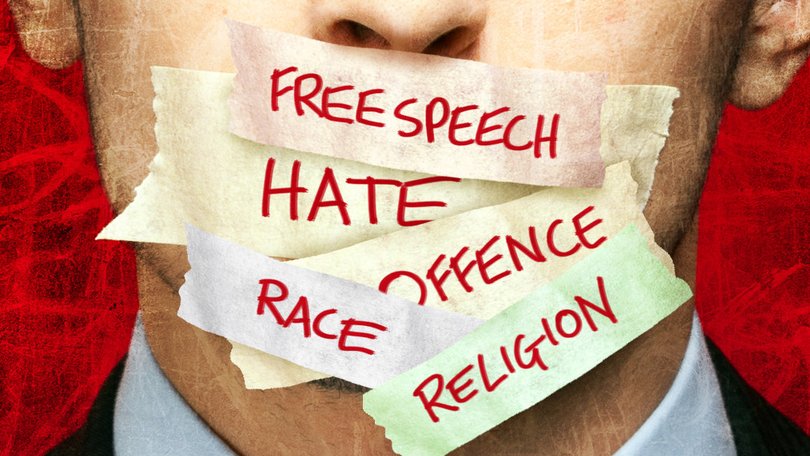THE NEW YORK TIMES: Now the left cares about free speech again
THE NEW YORK TIMES: There is a silver lining for most things in life. This holds true for ABC’s craven (if brief) suspension, under thuggish government pressure, of Jimmy Kimmel’s late-night talk show.

Because there is a silver lining for most things in life, maybe there is also one for ABC’s craven (if brief) suspension, under thuggish government pressure, of Jimmy Kimmel’s late-night talk show. To wit: Now the left is once again all but unanimous in wanting to defend free speech.
That hasn’t always been the case in recent years.
It wasn’t the case when, a day before Kimmel’s suspension, Amy Klobuchar called on Congress to prevent violence like Charlie Kirk’s murder by cracking down on speech online. “I’m not for censorship, but I do think that more has to be done online,” said the Democratic senator from Minnesota. Sentences that begin “I’m not for censorship, but …” are usually calls for censorship.
Sign up to The Nightly's newsletters.
Get the first look at the digital newspaper, curated daily stories and breaking headlines delivered to your inbox.
By continuing you agree to our Terms and Privacy Policy.It wasn’t the case this spring when Democrats in the Colorado legislature sought to criminalize some speech that “misgendered” or “deadnamed” transgender children, including custody threats to parents who refused to use their child’s preferred pronouns.
It wasn’t the case in 2023 when a RealClear Opinion Research poll found that three-fourths of Democrats believe government has a responsibility to limit “hateful” or inaccurate social media posts, as compared with roughly half of Republicans.
It wasn’t the case when, in the summer of 2021, MSNBC’s Mika Brzezinski asked, with clear relish, whether social media companies shouldn’t be “open to lawsuits” for publishing what she and the government deemed to be “misinformation” on the COVID vaccines.
It wasn’t the case when Kate Bedingfield, the White House communications director then being interviewed by Brzezinski, answered, “We’re reviewing that, and certainly they should be held accountable.”
It wasn’t the case when, in February 2021, Facebook announced that it would treat claims that “COVID-19 is man-made or manufactured” — that is, the lab-leak hypothesis — as a form of misinformation, leading to the removal of all mention of it.
Mark Zuckerberg later complained that the Biden administration pressured the company to take down posts about COVID-19, including humour, according to a report in Politico.
It wasn’t the case among the stars of the liberal literary establishment, including Sally Rooney and Arundhati Roy, who demanded boycotts of Israeli publications, publishers and institutions on account of their presumptive complicity in oppressing Palestinians.
It wasn’t the case, either, when another batch of liberal writers, including cartoonist Garry Trudeau and novelist Peter Carey, rebuked the PEN American Center for its decision to give an award to Charlie Hebdo, the French satirical newspaper that lost 12 of its staff members in a 2015 terrorist attack.
It wasn’t the case when the New York publishing industry began capitulating to social-media demands to cancel or torpedo books whose authors had run afoul of one left-wing orthodoxy or another: Jeanine Cummins and “American Dirt,” Richard North Patterson and “Trial,” Dr Seuss and “If I Ran the Zoo” and several other titles.
It wasn’t the case when the editors of Slate indefinitely suspended podcast host Mike Pesca for arguing that it could be appropriate to mention a racial slur if not using it as an epithet.
Or when The Atlantic fired conservative writer Kevin Williamson after a few days of employment because of a handful of remarks made years earlier. Or when NBC parted ways with Megyn Kelly because she said (and then apologized for saying) that, in her childhood, using blackface was “OK as long as you were dressing up like a character.”
It wasn’t the case in 2021 when the Massachusetts Institute of Technology cancelled a prestigious science lecture by geophysicist Dorian Abbot because it didn’t like his views about diversity, equity and inclusion efforts.
Or when Harvard University pushed out evolutionary biologist Carole Hooven because of her insistence on the fundamental realities of sex differences. Or when Jason Kilborn, a professor at the University of Illinois, Chicago (a public university), was suspended merely for referring to two slurs without specifically mentioning the actual slurs.
Some readers might argue that the effort to cancel Kimmel is unique — and uniquely dangerous — because it was pushed by Brendan Carr, chair of the Federal Communications Commission.
That is true, but then why the comparative liberal silence about the Biden administration’s efforts to police speech on social media? Others might argue that COVID misinformation or hate speech should be subject to different rules from mundane political speech. More than a century of First Amendment jurisprudence, from liberal and conservative justices alike, says otherwise.
And then there are those who point to the hypocrisy of conservatives, Carr not least, who rail against censorship and cancellation when it comes from the left and then enforce their own cancel (or consequence) culture the moment they are in power.
A very fair point — and all the more reason for liberals to stick by liberal principles when it comes to their own side’s self-appointed censors.
It’s a cliché, but can’t be said enough, that speech is genuinely free only when it is speech we like the least from those we dislike the most. Rosa Luxemburg put it well: “Freedom is always and exclusively freedom for the one who thinks differently.”
Shana tova.
This article originally appeared in The New York Times.
© 2025 The New York Times Company
Originally published on The New York Times
